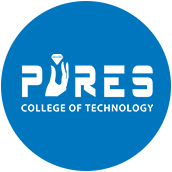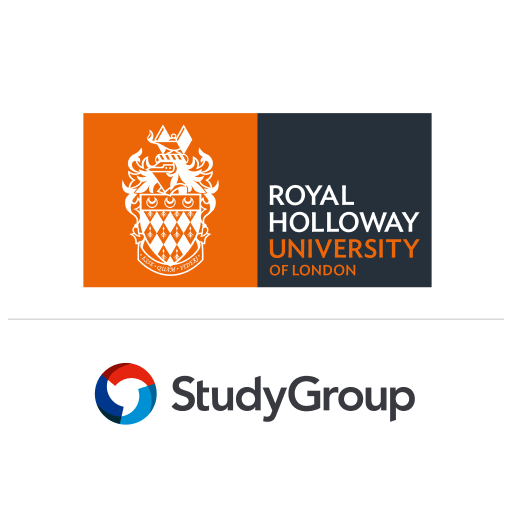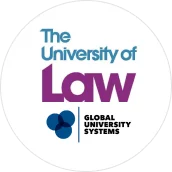• study in the UK
Medical Courses in UK
1277 Reads
3 min Read
- Medical courses in the UK provide a balanced mix of theoretical knowledge and practical clinical experience, preparing students for diverse healthcare careers.
- Postgraduate programs offer specialised training in fields such as surgery, internal medicine, pediatrics, and psychiatry, leading to qualifications like MRCP and MRCS.
- Studying medicine in the UK opens doors to diverse career paths in clinical practice, research, academia, public health, and medical leadership roles, offering a fulfilling and impactful career trajectory.
Medical courses in the UK are recognised globally for their academic challenge, updated facilities, and comprehensive practical experience. UK Universities also provide numerous focused medical programs, which attract students from worldwide who wish to make their careers in this field.
Medical Education in UK for Indian Students
Why Study Medical-related Courses in UK?
| Prestigious Institutions and Global Recognition | The UK boasts some of the world's oldest and most prestigious medical schools. These institutions are recognized globally for their high academic standards and research contributions in the medicine field. |
| Diverse Learning Environments | Medical education in the UK offers a blend of theoretical knowledge and practical clinical experience. Students have access to state-of-the-art facilities, teaching hospitals, and research opportunities, providing a comprehensive learning experience that prepares them for a successful career in healthcare. |
| Wide Range of Specializations | UK universities offer a wide range of specialisations and opportunities for interdisciplinary study within medicine and related fields. This allows students to tailor their education to their interests and career goals. |
| Variety of Courses | UK universities offer a variety of medical courses catering to different stages of education and career goals, from undergraduate MBBS programs to specialised postgraduate training in various medical specialities. |
| Clinical Exposure and Practical Training | Medical courses in the UK emphasise clinical exposure and practical training from early stages, allowing students to gain hands-on experience in real healthcare settings. This practical training is crucial for developing clinical skills and preparing for professional practice. |
Medical Programs in UK
| Bachelor of Medicine, Bachelor of Surgery (MBBS) | This is the primary medical degree in the UK and is equivalent to the MD degree in other countries. It typically takes five to six years to complete. |
| Graduate Entry Medicine (GEM) | This is an accelerated program for graduates with a degree in another discipline. It usually lasts four years instead of the traditional five or six years of the MBBS. |
| Bachelor of Science (BSc) in Medicine | Some universities offer an undergraduate degree that integrates medicine with a broader scientific education. This can be followed by a postgraduate medical degree. |
| Foundation Year 1 (F1) Training | After completing a medical degree, graduates must undertake a two-year foundation program, which includes supervised clinical training. |
| Specialty Training | After the foundation years, doctors can specialize in various fields, such as surgery, internal medicine, pediatrics, and psychiatry. This involves further training and examinations specific to the chosen specialty. |
| PhD in Medicine | For those interested in research, universities offer PhD programs in medical sciences, focusing on areas such as biomedical research, clinical research, etc. |
| Medical Electives | These are optional placements that medical students can undertake abroad or within the UK to gain experience in different healthcare settings. |
Best Medical Universities in UK
| University | Program |
| University of Dundee | Bachelor of Medicine and Bachelor of Surgery (MBChB) |
| University of Aberdeen | Medicine MBChB |
| Cardiff University |
|
| University of Nottingham |
|
| University of Sheffield |
|
Medical Courses in UK Requirements
| Requirement | Details |
| Academic Qualifications |
|
| Entrance Exams |
|
| English Language Proficiency | Required if English is not your first language, assessed through tests like IELTS or TOEFL. |
| Work Experience | Valued by many schools, demonstrating a commitment to healthcare through shadowing or work in healthcare settings. |
| Personal Statement | A crucial part of the application highlights motivation, relevant experiences, and skills. |
| Interview | Multiple mini-interviews (MMIs) or traditional panel interviews assess communication, problem-solving, and suitability for medicine. |
Cost of Studying Medical Courses in UK
| Category | Fee Description |
| Undergraduate (MBBS/BSc Medicine) |
|
| Graduate Entry Medicine (GEM) |
|
Jobs after Medical Courses in UK
| Job Position | Annual Average Salary (GBP) |
| Junior Doctor (Foundation Year) | £27,146 - £47,132 |
| Specialty Registrar (ST1-ST3) | £37,191 - £47,132 |
| Consultant (after training) | £82,096 - £110,683 |
| General Practitioner (GP) | £60,455 - £92,305 |
| Hospital Doctor | £37,191 - £82,096 |
| Surgeon | £37,191 - £110,683 |
| Psychiatrist | £38,694 - £94,373 |
| Anesthesiologist | £39,060 - £110,683 |
| Pathologist | £39,060 - £94,373 |
| Radiologist | £39,060 - £110,683 |
| Pediatrician | £39,060 - £110,683 |
| Obstetrician/Gynecologist | £39,060 - £110,683 |
| Medical Researcher (PhD) | £30,000 - £50,000 |
Conclusion
Get great articles direct to your inbox
The latest news, articles, and resources, sent straight to your inbox every month.
Popular Universities to Study Abroad
World class education waiting for you.


Study Group - Royal Holloway University of London International Study Centre
England, UK • 253 Programmes
Tuition Fee : GBP 18000-19000 / year

University of Exeter - St Lukes Campus
England, UK • 17 Programmes
Tuition Fee : GBP 19000-39000 / year

California State University - Fresno
California, USA • 179 Programmes
Tuition Fee : USD 12000-12000 / year

Sheridan College - Trafalgar Road Campus, Oakville
Ontario, Canada • 97 Programmes
Tuition Fee : CAD 18000-36500 / year

Global University Systems (GUS) - The University of Law - Leeds Campus
England, UK • 20 Programmes
Tuition Fee : GBP 11000-18000 / year

Trinity Western University - Richmond Campus
British Columbia, Canada • 5 Programmes
Tuition Fee : CAD 0-0 / year

Popular English Language Proficiency Exams
Blogs and Articles
Curated content to keep you updated on the latest education trends, news and more.
ACT vs. SAT: Which One to Choose?
Updated on • Apr 12,2025 05:40 PM IST • Study Abroad
Updated on • Apr 11,2025 05:53 PM IST • IELTS
Backlog Certificate: A Complete Guide
Updated on • Apr 11,2025 01:47 PM IST • Study Abroad Guidance
PTE Score Chart 2025: PTE Exam Scoring System & Calculation
Updated on • Apr 09,2025 05:37 PM IST • PTE
Master's in Computer Science in the USA
Updated on • Apr 08,2025 05:59 PM IST • USA
Top Trending MBA Specialisations in 2025
Updated on • Apr 08,2025 04:47 PM IST • Study Abroad
Describe Your Hometown IELTS Speaking Part 1 Topic
Updated on • Apr 07,2025 05:50 PM IST • IELTS
How to Get a Job in USA in 2025
Updated on • Apr 07,2025 03:19 PM IST • USA
Highest Paying Jobs in the World
Updated on • Apr 01,2025 05:31 PM IST • Study Abroad
Student Life in Ireland in 2025
Updated on • Mar 29,2025 05:50 PM IST • Ireland
Top Public Universities in Germany
Updated on • Mar 26,2025 04:33 PM IST • Germany
Top Universities for Masters in Ireland in 2025
Updated on • Mar 25,2025 04:36 PM IST • Ireland
Cost of Living in Singapore for Indian Students in 2025
Updated on • Mar 22,2025 11:57 AM IST • Singapore
PTE vs IELTS : Know the Difference and Which is Easier?
Updated on • Mar 21,2025 03:38 PM IST • IELTS
Updated on • Mar 20,2025 10:19 AM IST • Germany
Updated on • Mar 12,2025 11:20 AM IST • Ireland
Updated on • Mar 11,2025 01:18 PM IST • USA
Best Countries to Study Abroad for Indian Students in 2025
Updated on • Mar 08,2025 01:24 PM IST • Study Abroad
Updated on • Mar 05,2025 12:19 PM IST • UK
Fastest Growing Job Sectors in Germany in 2025
Updated on • Feb 28,2025 04:04 PM IST • Germany
Related Blogs and Articles
A little effort to provide an authentic and reliable content for keen readers!!
Updated on • 23-12-2024 • study in the UK
Updated on • 04-12-2024 • study in the UK
Master's in Management (MIM) in UK: Best Universities, Scholarships, Jobs & More
Updated on • 07-11-2024 • study in the UK
January Intake in UK : Universities, Timeline, Deadlines & More
Updated on • 28-10-2024 • study in the UK
May Intake in UK 2025: Universities, Courses, Requirements & More
Updated on • 04-10-2024 • study in the UK
Updated on • 25-07-2024 • study in the UK
10 Part-time Jobs in UK for International Students
Updated on • 23-07-2024 • study in the UK
Most Popular Degree Courses in the UK
Updated on • 18-05-2024 • study in the UK
Updated on • 01-05-2024 • study in the UK
Updated on • 11-03-2024 • study in the UK
Documents required for admission in UK
Updated on • 20-02-2024 • study in the UK
Updated on • 20-02-2024 • study in the UK
Masters (MS) in UK: Best Universities, Courses, Fees, Eligibility for Indian Students
Updated on • 19-02-2024 • study in the UK
Cost of Living in UK for International Students in 2024
Updated on • 07-02-2024 • study in the UK
Updated on • 25-01-2024 • study in the UK
Updated on • 07-11-2023 • study in the UK
Paramedical courses in UK: Universities, Eligibility & Scope
Updated on • 21-10-2023 • study in the UK
Interior Design in the UK: Courses, Universities, Eligibility, Costs, Scholarship, Jobs
Updated on • 19-10-2023 • study in the UK
Bachelor's Degrees in the UK- Universities, Courses, Eligibility, and Admission Process
Updated on • 13-10-2023 • study in the UK
1-Year Master's Programs in the UK
Updated on • 06-10-2023 • study in the UK











